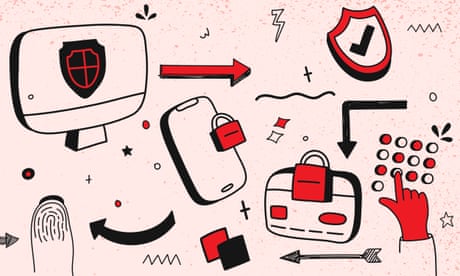- by theguardian
- 12 Jun 2024
Can a new form of cryptography solve the internet’s privacy problem?
Can a new form of cryptography solve the internet’s privacy problem?
- by theguardian
- 31 Oct 2022
- in technology

Rachel is a student at a US university who was sexually assaulted on campus. She decided against reporting it (fewer than 10% of survivors do). What she did, however, was register the assault on a website that is using novel ideas from cryptography to help catch serial sexual predators.
The organisation Callisto lets a survivor enter their name in a database, together with identifying details of their assailant, such as social media handle or phone number. These details are encrypted, meaning that the identities of the survivor and the perpetrator are anonymous. If you hacked into the database, there is no way to identify either party.
However, if the same perpetrator is named by two people, the website registers a match and this triggers an email to two lawyers. Each lawyer receives the name of one of the survivors (but not the name of the perpetrator). The lawyers then contact the survivors to let them know of the match and offer to help coordinate any further action should they wish to pursue it.
In short, Callisto enables the survivors of sexual assault to do something unprecedented: they can discover if their abuser is a repeat offender without identifying themselves to the authorities or even identifying the name of the abuser. They have learned something useful, and possibly helpful, without having given anything away. "Survivors can find it healing to know they are not the only one. They don't feel it is their fault," says Tracy DeTomasi, Callisto CEO. And there is strength in numbers. "Maybe one person doesn't have a case, but two people do."
The ability of two strangers to pool their knowledge without revealing any personal information to each other is a seemingly paradoxical idea from theoretical computer science that is fuelling what many are calling the next revolution in tech. The same theory enables, for example, two governments to discover if their computer systems have been hacked by the same enemy, without either government divulging confidential data, or two banks to discover if they are being defrauded by the same person, without either bank breaking financial data protection laws.
The umbrella term for these new cryptographic techniques, in which you can share data while keeping that data private, is "privacy-enhancing technologies", or Pets. They offer opportunities for data holders to pool their data in new and useful ways. In the health sector, for example, strict rules prohibit hospitals from sharing patients' medical data. Yet if hospitals were able to combine their data into larger datasets, doctors would have more information, which would enable them to make better decisions on treatments. Indeed, a project in Switzerland using Pets has since June allowed medical researchers at four independent teaching hospitals to conduct analysis on their combined data of about 250,000 patients, with no loss of privacy between institutions. Juan Troncoso, co-founder and CEO of Tune Insight, which runs the project, says: "The dream of personalised medicine relies on larger and higher-quality datasets. Pets can make this dream come true while complying with regulations and protecting people's privacy rights. This technology will be transformative for precision medicine and beyond."
The past couple of years have seen the emergence of dozens of Pet startups in advertising, insurance, marketing, machine learning, cybersecurity, fintech and cryptocurrencies. According to research firm Everest Group, the market for Pets was $2bn last year and will grow to more than $50bn in 2026. Governments are also getting interested. Last year, the United Nations launched its "Pet Lab", which was nothing to do with the welfare of domestic animals, but instead a forum for national statistical offices to find ways to share their data across borders while protecting the privacy of their citizens.
- by travelandtourworld
- descember 09, 2016
Travel Industry Called to Act on Climate Justice in Latest Report
read more






